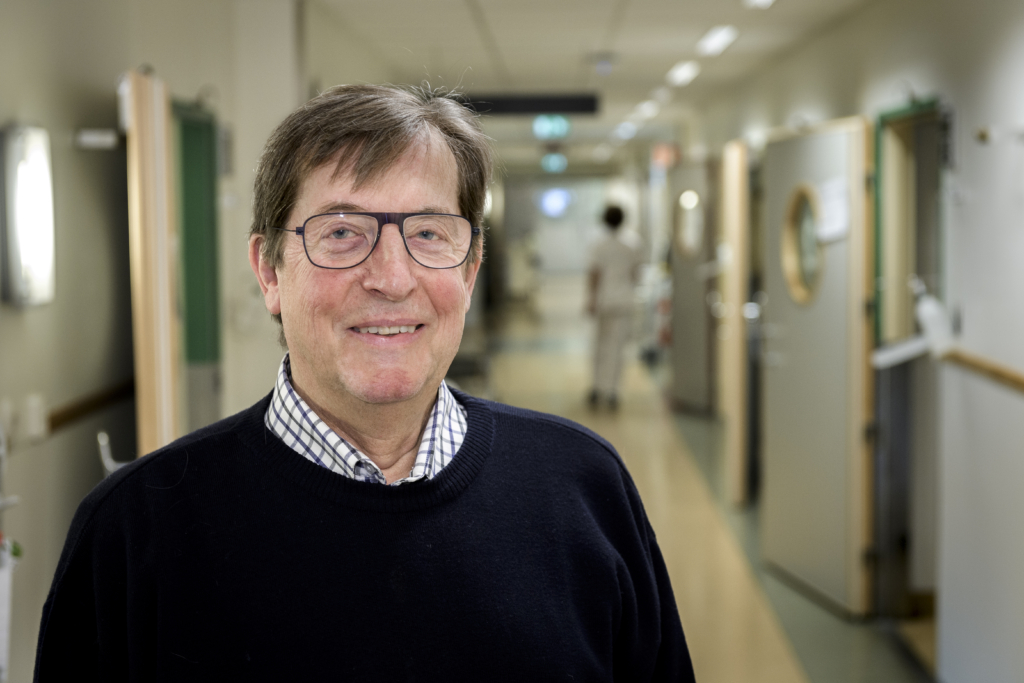More than a billion migraine sufferers can now live better lives, thanks to the discovery of the key cause of migraine by four world-renowned neuroscientists, one of whom is Lars Edvinsson, Professor of Internal Medicine at Lund University. He is one of the recipients of the prestigious Brain Prize.
The internationally renowned neuroscientist Lars Edvinsson, together with his equally acclaimed collaborators Peter Goadsby (UK/USA), Michael Moskowitz (USA) and Jes Olesen (Denmark), receives the Brain Prize – the world’s most prestigious award in brain research. The Brain Prize is awarded annually by the Lundbeck Foundation. The award is worth DKK 10 (approximately $1.5m), and it is given to one or more neuroscientists who have had a ground-breaking impact in the field.
“This is a prize for all patients in need of better medication. Being a physician who cares deeply for his patients, it warms my heart when they come back and tell me that they do not have migraine anymore. This is worth everything!”
The award is given for their four decades of groundbreaking research on migraine. Namely, Lars Edvinsson and his collaborators have discovered that the key trigger of migraine is the hyperactivity of the so-called CGRP molecule, which is responsible for optimal blood circulation in the brain, protecting the brain against altered blood flow. Normalizing the hyperactivity of CGRP could help treat the disease. This understanding led to the development of novel drugs for long-term prevention of migraine. This was a much-needed advancement as the existing migraine treatments had significant side effects and could only help to relieve the symptoms, not prevent migraine.
Professor of Internal Medicine at Lund University, Lars Edvinsson entered the doors of Lund University as a medical student 50 years ago. Professor Edvinsson recounts the day he got admitted to Lund University as his “happy day”. During his studies, he realized that there was a serious lack of knowledge about the role of autonomic and sensory nerves in regulation of blood circulation and of their key function in migraine, and this is what motivated him to dig deeper.
Migraine is not just a bad headache. It is a neurological disease manifesting itself through symptoms such as recurring moderate or severe head pain, nausea, dizziness as well as extreme sensitivity to sound, light, smell and touch.
“Some patients are so sensitive to touch that they can’t even comb their hair, notes Professor Lars Edvinsson.”
According to him, based on symptoms such as fatigue and food craving, patients can even foretell that they are going to have a migraine attack the next day. Amongst migraine sufferers, there is even a group of patients who have more days with migraine than without migraine (chronic migraine). The drugs developed based on Lars Edvinsson’s research are effective even for this group as the occurrence of migraine are reduced by several days a month for those patients. In about 20% the migraine can even be totally absent.
However, there is one group of patients that Lars Edvinsson has not fully been able to help yet but aims to do so: women with menstruation-related migraine. “Female hormones change over the cycle. Most of the time, women get migraine right before menstruation. The levels of oxytocin and estrogen drop dramatically as a signal for the forthcoming menstruation. We have found that the hyperactivity of the CGRP molecule is also linked with changes in the levels of these hormones.”
Lars Edvinsson is the first Scandinavian to have ever received the Brain Prize. As with most extraordinary happenings in our lives, he says that the award was unexpected.
“I was having an important meeting a month ago and I asked my secretary not to disturb us. Suddenly she knocked on the door and said: ‘Lars, I think you have to take this. It’s someone from England and he says it’s very important’. It was Professor Richard Morris (the Chairman of the Brain Prize selection committee, editor’s notes). When I came back to the meeting, everyone was saying: ‘What is going on? You look so funny. You’ve changed so much!’ It is truly rewarding to have received the Brain Prize.”
Lars Edvinsson points out that he receives hundreds of mails from colleagues worldwide to congratulate him on the prize which, in their opinion, is well-deserved. Those colleagues remember that Lars Edvinsson has been fighting for proving that the CGRP molecule plays a key role in migraine for almost a lifetime. Lars Edvinsson receives an innumerable number of emails from grateful patients, which particularly warms his heart. He remembers an entertaining story about one patient that he met in Stockholm:
“I was giving a talk to patients in Stockholm. The chair of the Stockholm patient organization came up to me, hugged me and said: ‘Well, why couldn’t you be a bit quicker? Now I’m so old I would have very little use of the new antibodies”’. But she was, of course, very happy for all the people in the community.”
The research journey endured a lot of challenges and even negligence. In 1985 Lars Edvinsson published his first article regarding the central role of CGRP in the occurrence of migraine, but it sparked virtually no interest as other scientists were only interested in the neuropeptide substance P. However, in 1999 all respective clinical trials, involving many big industries, came out negative in relation to migraine substance P blockers.
“And then they said: ‘Ha, that Swedish guy. What has he been doing for 20 years?’”
Lars Edvinsson believed in his work and he enjoyed putting the puzzle pieces together. Negligence and demotivation had not stopped him. By the time the research community turned their attention back to him, he had managed to work without interreference resulting in clear and solid data based on repeatedly successful trials. By then, he had already published sixty papers on the CGRP mechanism. Persistence – which is his favorite word – was what helped him keep moving forward with his research.
The Brain Prize stands for a light at the end of the tunnel for all researchers who, like young Lars Edvinsson, will experience or have experienced negligence because of their unorthodox ideas. Whether you are starting your research career now or you have come long down the road, Lars Edvinsson, now winner of the biggest prize in neuroscience, has left a message for you:
“Be interested in your work. Do it carefully. I can name lots of people who have said on the way that CGRP was not worth anything, but I listened to my own heart and not to big professors and their opinions. Believe in yourself and be persistent – that is what a successful researcher does”.










